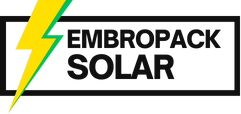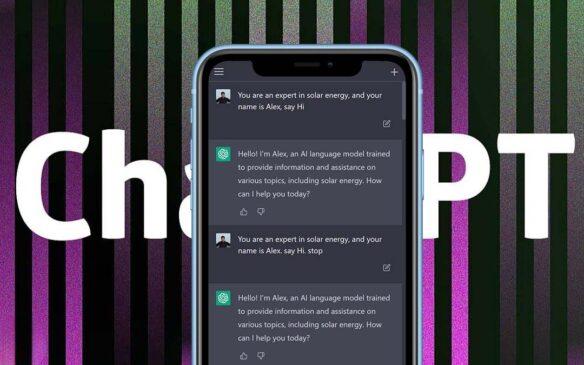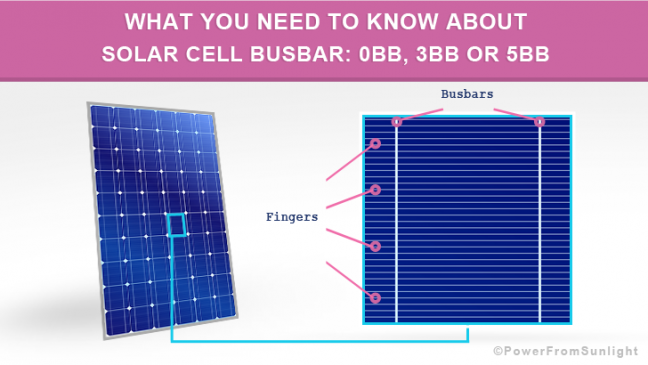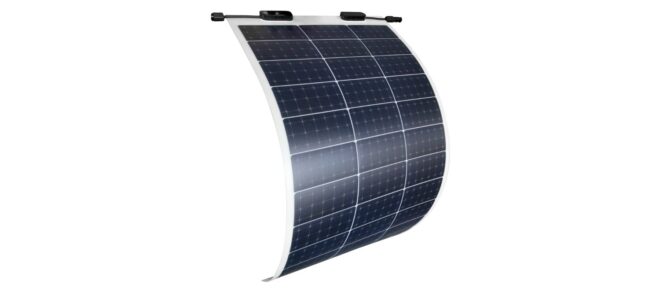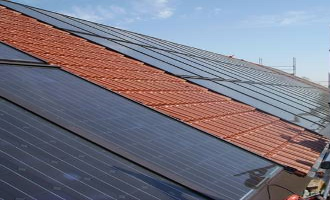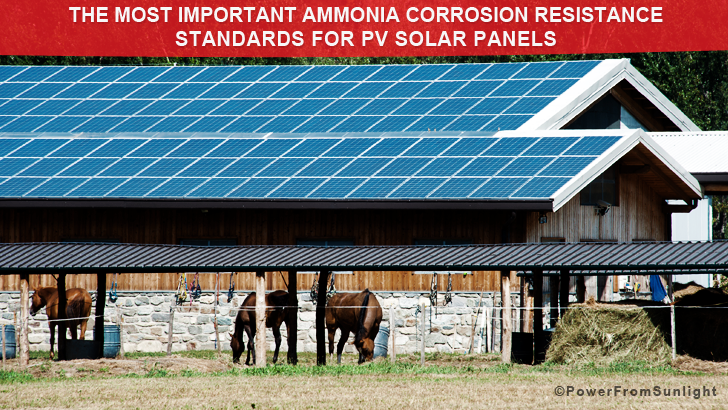
The Most Important Ammonia Corrosion Resistance Standards For PV Solar Panels
In recent years, farmers have been the driving force for the PV industry (among others, because of the encouragement of building-integrated PV systems).
PV solar panels which are mounted on livestock farm buildings and greenhouses are subjected to particular environmental conditions that may be very aggressive, more specifically, the ammonia.
The concentration of ammonia (NH3), which is a harmful substance that is released into the air in large amounts on farms, may be very high and these emissions can additionally increase the solar panel degradation, which leads to a lower energy yield.
Such PV solar panels must withstand these corrosive environments. For this, a set of standards has been developed. The most common are:
TÜV Rheinland: IEC 62716 Ammonia corrosion testing of photovoltaic (PV) modules
TÜV Rheinland covers a broader spectrum of testing and certification services for a variety of PV products and applications.
Advantages
- Test under high NH3 concentration
- The test considers temperature and air humidity change
Disadvantages
- TÜV Rheinland tests only for 480 hours (20 days)
Examples of some solar panels Manufacturers which use the IEC 62716 certification: JinkoSolar, Trina Solar.
The DLG Ammonia Test: Test of the German Agricultural Society DLG
The German Agricultural Society (Deutsche Landwirtschafts-Gesellschaft), commonly known as DLG, is an international non-profit organization for the agricultural industry in Germany.
DLG was founded by an engineer, Max Eyth, in 1885. It has over 25,000 members, and its headquarters are in Frankfurt am Main. Its primary purpose is to promote technical and scientific progress in the food and agricultural industry, including setting standards.
To help farmers with their planned solar PV systems on their roofs, the German Agricultural Society (DLG) developed a method at the end of 2009 to test the resistance of PV solar panels to ammonia. Module manufacturer Schott Solar assisted the society, which also tests food products and agricultural engineering.
Advantages of DLG Ammonia Test
- Longer test period: 1500 hours (62.5 days)
Disadvantages of DLG Ammonia Test
- Test under lower NH3 concentration (750 ppm) compared to the tests of TÜV Rheinland and SGS.
- Test does not consider temperature and air humidity change
- Test is made in constant climate
Examples of some solar panels Manufacturers which use the DLG certification: WINAICO, Coenergy AG, Schott Solar, and SolarWorld.
The SGS Ammonia Test: The Swiss testing institute (Société Générale de Surveillance, SGS)
SGS is a multinational company with its headquarters in Geneva, Switzerland and provides inspection, verification, testing and certification services. It has more than 90,000 employees and operates a network of more than 2,000 offices and laboratories around the world.
Advantages of the SGS Ammonia Test
- Test under high and variable NH3 concentration
- Test considers temperature and air humidity change
- The SGS offers an ammonia test in which the concentration, the temperature, and the air humidity can be individually adjusted
- The ammonia resistance of the PV solar panels can be tested according to DLG, TÜV, or individual criteria.
Disadvantages of the SGS Ammonia Test
- SGS tests only for 500 hours (21 days)
Examples of some solar panels Manufacturers which use the SGS certification: aleo solar AG and SolarWorld.
Comparison Table of the most important ammonia tests for PV solar panels
| Supplier | DLG | TÜV Rheinland | SGS |
|---|---|---|---|
| NH3 concentration | 750 ppm | 6,667 ppm | 50 to 6,700 ppm |
| Temperature | 70 °C | first 60 °C, then 23 °C | 30 °C to 80 °C |
| Air humidity | 70% | first 100 % (condensation), then 75% | 50% to 100% (condensation) |
| Total testing time | 1,500 h = 62.5 days | 480 h = 20 days | 500 h = 21 days or longer |
| Climate | Constant climate | Cyclic climate 8 h at 60 °C, 100% rh (condensation) 16 h at 23 °C, 75% rh (dry) | Constant or cyclic climate |
